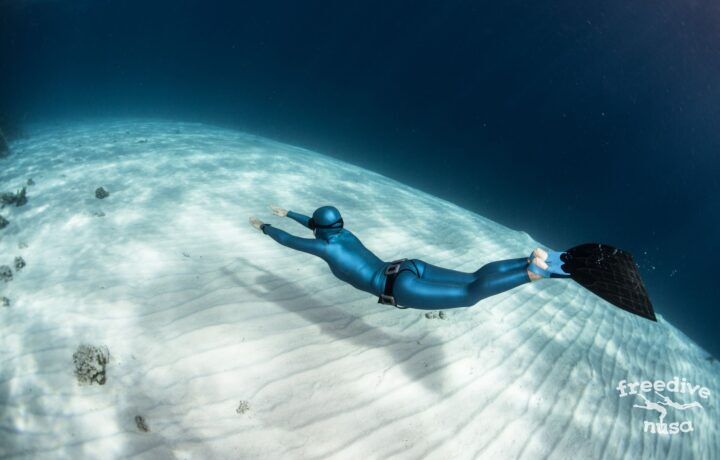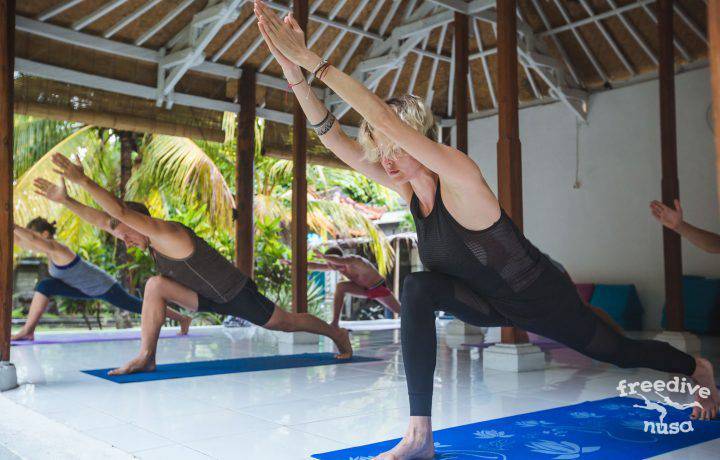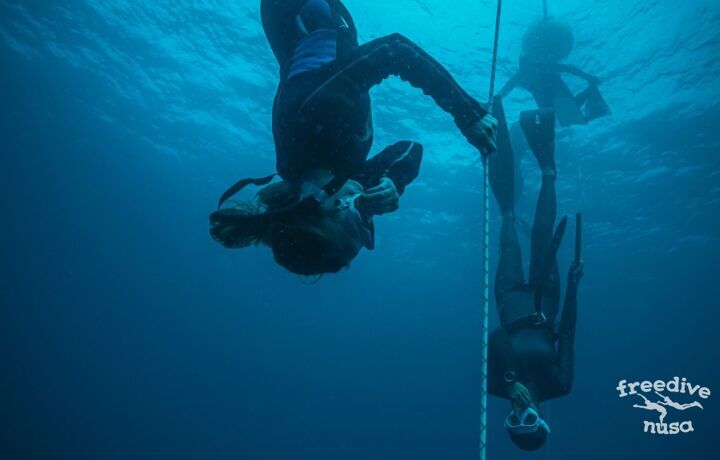Nowadays, freediving is becoming an increasingly popular hobby. A method of hunting practiced since ancient times, now experiencing a revival as an exciting pastime and is often referred to as the fastest growing water sport in the world. Freediving schools are opening all over the world, both in warm tropical countries and everywhere in cities.
If you are a scuba diver and prefer to breathe underwater rather than holding your breath, freediving can still be very beneficial for you. Many of the skills learned in freediving courses can be very useful during scuba diving and will make you a more professional and confident diver.
Below we have listed the top 5 benefits that freediving can bring to every scuba diver.
1. Learning basic diving skills
The experience of breath-hold diving before starting scuba diving training is a big benefit for the future diver. During the early days of scuba diving as a water sport, mastering the basic skills of freediving was a prerequisite before starting a course. Nowadays, this is no longer a mandatory requirement, and some instructors, unfortunately, do not even check the ability to swim and confidently stay on the surface of the water.
Studying freediving allows students to become familiar with basic diving equipment. Of course, there is a difference between diving and freediving equipment, but the general principles of using basic equipment (mask, snorkel, fins) are the same. And you also need to learn how to use them correctly if you have never done this before.
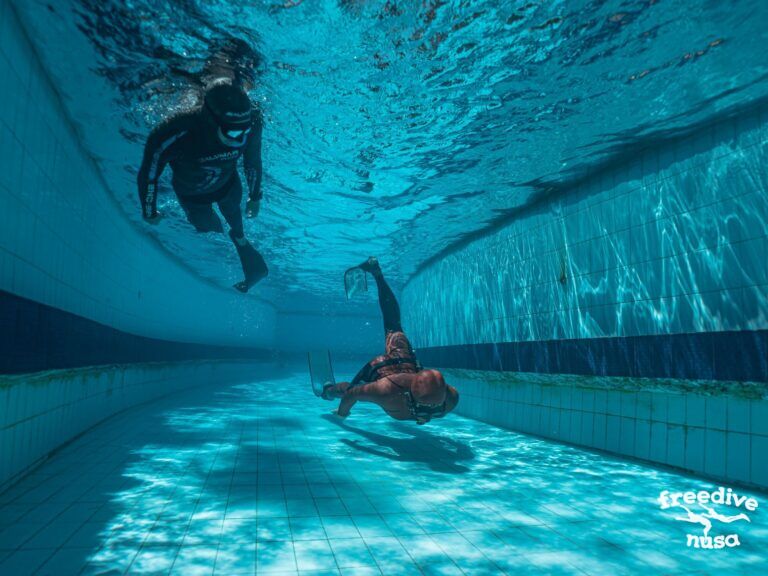
Regarding the skills. One of the first skills taught in scuba diving is clearing the mask of water at depth. This is also a necessary skill when learning to freedive. So on the Freediving Level 1 course, ascent without a mask from a depth of 10 meters is one of the mandatory requirements. And having done this once while holding your breath, believe us, sitting quietly on a sandy bottom or in a pool, it will be much easier for you to perform such a stressful exercise.
Proper finning technique is also very important for the freediver who needs to get the maximum underwater propulsion from every fin movement. The development of this skill in the future will help divers move underwater more relaxed and smooth, enjoying the dive and not being distracted by the finning. Proper finning technique helps you to better control your body position in the water, preventing the fin from contacting the bottom, corals, or your buddy’s face. Proper and relaxed kicking allows you to use less oxygen and increase your time under the water.
2. Breathing techniques and improving air consumption
What do divers like to “measure”? Of course, how many BARs are left in the tank after diving;) Beginners are known for their ability to quickly consume air. Nobody wants to be that person who was the first to finish his air in the tank and become the reason why the whole group has to ascend to the surface and finish the dive!
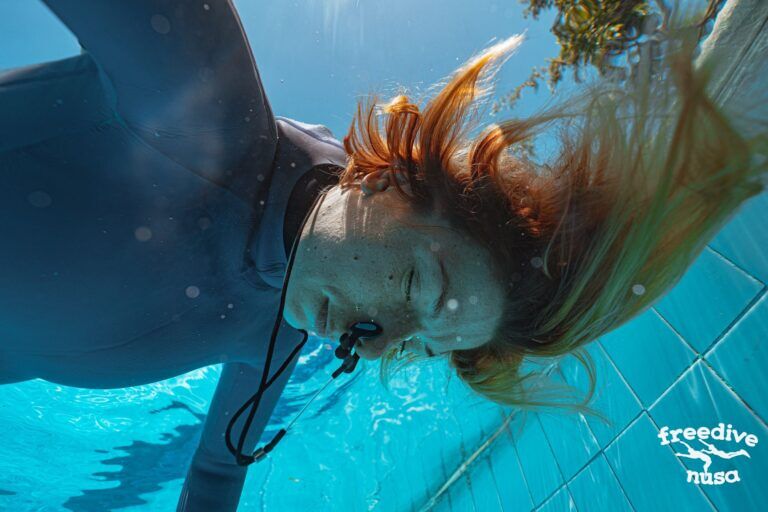
Scuba divers can greatly increase their dive time by learning the control and breathing techniques used in freediving. Freedivers must be able to control their breathing very well in order to get the most out of a single breath. Scuba divers having learned these skills will use their air much more efficiently. By consciously controlling their breathing, a diver can significantly reduce air consumption, experience less fatigue during a dive, be more relaxed, and ultimately have longer, more enjoyable, and more comfortable dives.
3. Advanced equalization techniques
Same as scuba divers, freedivers need to equalize pressure in their middle ear, sinuses and mask when diving at depth. Since freedivers do not have air tanks behind their backs, they dive headfirst, deeper and faster – equalization in freediving is more difficult than in scuba diving. Equalization is the biggest challenge and limitation for many beginner freedivers. Therefore, freediving courses devote much more attention and time to equalization, and freedivers use more efficient and less energy-consuming methods of equalization.
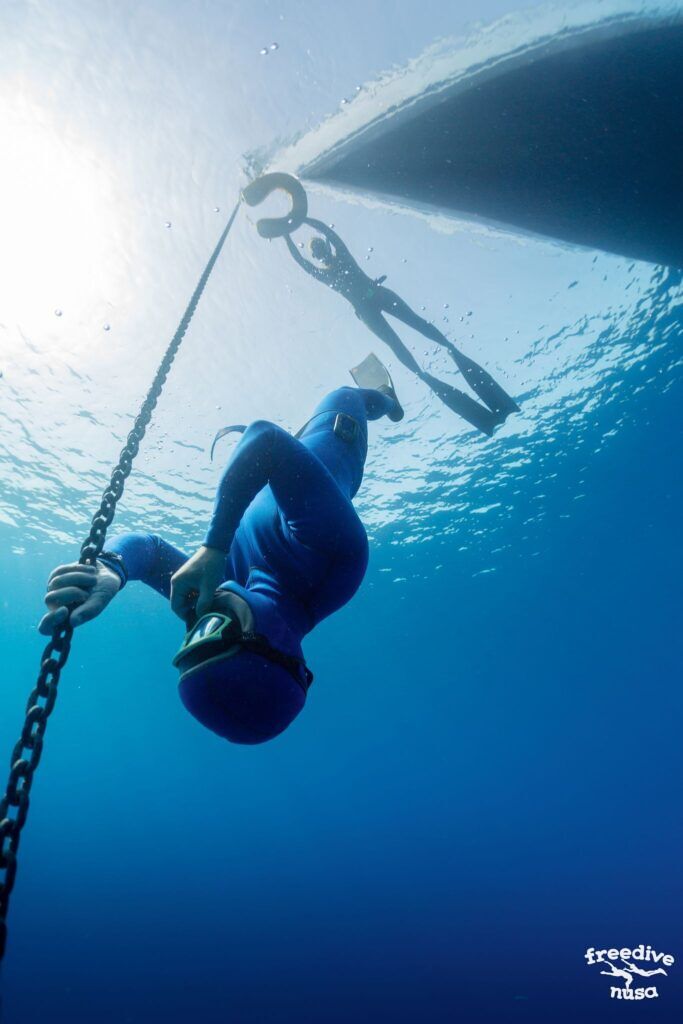
The two best-known EQ techniques are called the Valsalva Method and the Frenzel Maneuver. Scuba divers tend to use Vasalva. This is the most technically simple EQ method when exhale is made from the lungs into a pinched nose. Due to this, air from the nasal cavity through the eustachian tube enters the middle ear, equalizing the pressure in it. The advantage of this method is its simplicity. Cons are low efficiency, unnecessary stress, excessive load on the lungs.
In addition, in freediving deeper than 20-30 meters, when the lungs are compressed by ambient pressure, this method doesn’t work anymore because it becomes impossible to expel air from the lungs.
Frenzel Maneuver uses air from the mouth, not the lungs. This method is more difficult to master, but much more efficient. The increase in pressure in the nasal cavity, in this case, occurs not due to the tension of the lungs and exhalation into a pinched nose, but due to the movement of the larynx and the root of the tongue upwards like a piston.
Many experienced scuba divers naturally switch to Frenzel and use it as more efficient without even knowing or realizing it. Mastering this EQ technique will allow divers to greatly increase the effectiveness of pressure equalization and avoid possible barotrauma in various unforeseen situations.
4. Learning efficient and relaxed movement in the water
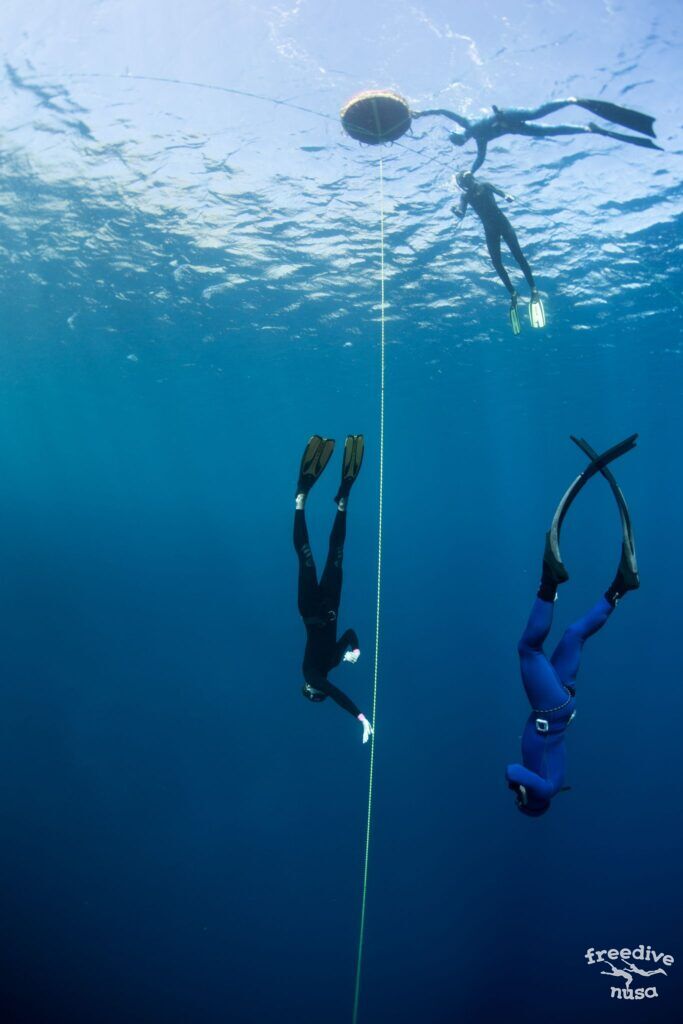
If you’ve ever seen freedivers in the water, you’ve probably noticed how graceful they move. Since freedivers must use their air supply as efficiently as possible, taking their only breath, they need to have good control over their body and all movements, be able to move in the water as streamlined and relaxed as possible.
Freedivers learn the finning technique, which allows them to move efficiently underwater, using as little energy as possible, thereby conserving oxygen. By tracking their own body position, they also understand how to reduce their drag and be as streamlined as possible.
Freediving will help you learn to better control your buoyancy. By controlling breathing, the scuba diver can ascend with inhalation and descend with exhalation. This is one of the basic skills scuba divers learn to control buoyancy. The more you practice breathing techniques, the more likely you are to improve this important buoyancy control skill for every diver.
5. Development of self-control and stress management techniques
Perhaps the most important and long-term benefit of freediving is the development of control of the body and mind.
When learning diving, most of the course is devoted to learning how to use scuba equipment. When learning to freedive, you learn how to control your body and mind while being under the water!
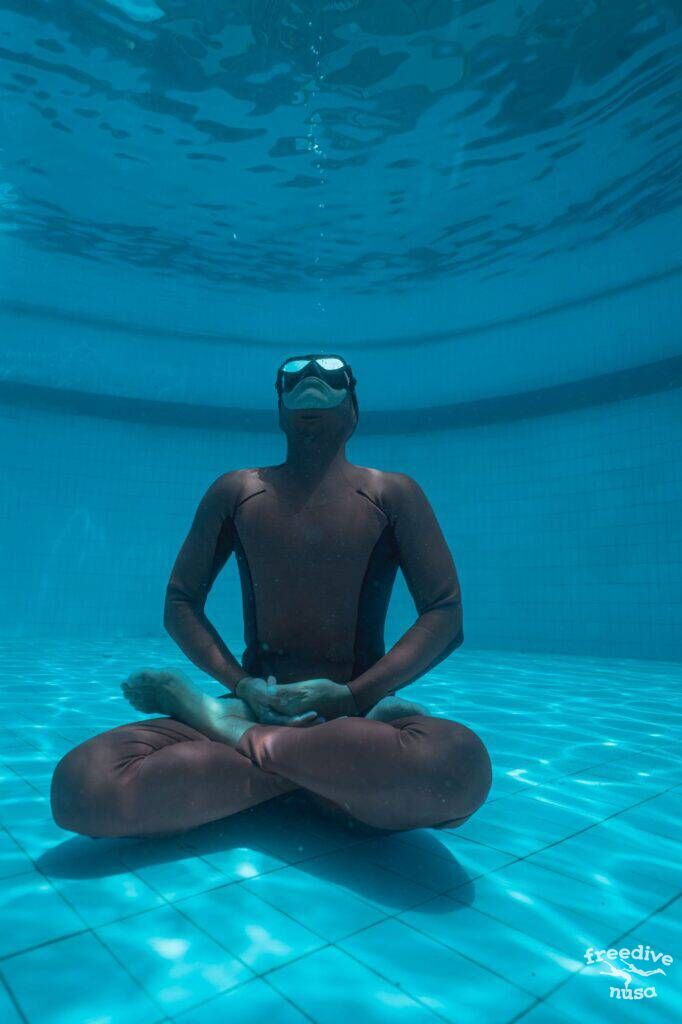
Freediving creates a lot of physical stress on the body, requires active mental control. Breathing is an automatic natural process. Stopping your breath and overcoming the urge to breathe is something that every freediver expects and that is stressful for many people.
While being underwater, you should be as calm and relaxed as possible. Adrenaline is contraindicated in freediving. Therefore, a significant part of freediving training focuses on the art of relaxation, which helps to stay focused and balanced in any situation.
All of these self-control techniques can be used very well in scuba diving. The state of calmness and mind control during a dive helps to prepare much better for potential adverse situations at depth, such as an unexpected current, loss of a mask or regulator, or any other equipment difficulties. A calm, relaxed, self-controlled diver is much less likely to panic under unforeseen circumstances.
Try freediving!
If you’re a scuba diver and you’re thinking about trying freediving, go for it! You are guaranteed to benefit yourself!
If you haven’t scuba-dived yet, you can start with breath-hold diving. This will help you to be better prepared for further training in scuba, make this training easier and make you a more confident diver. You will learn to move more calmly and naturally in the water. Become more advanced in equalization techniques, increase your level of relaxation and mind control while underwater.
The freediving experience will expand your skills and self-confidence, making your diving experience safer, more enjoyable, and more conscious!
Sign up for our Freediving Beginner Course – Level 1

